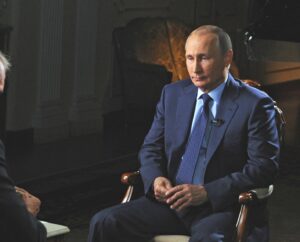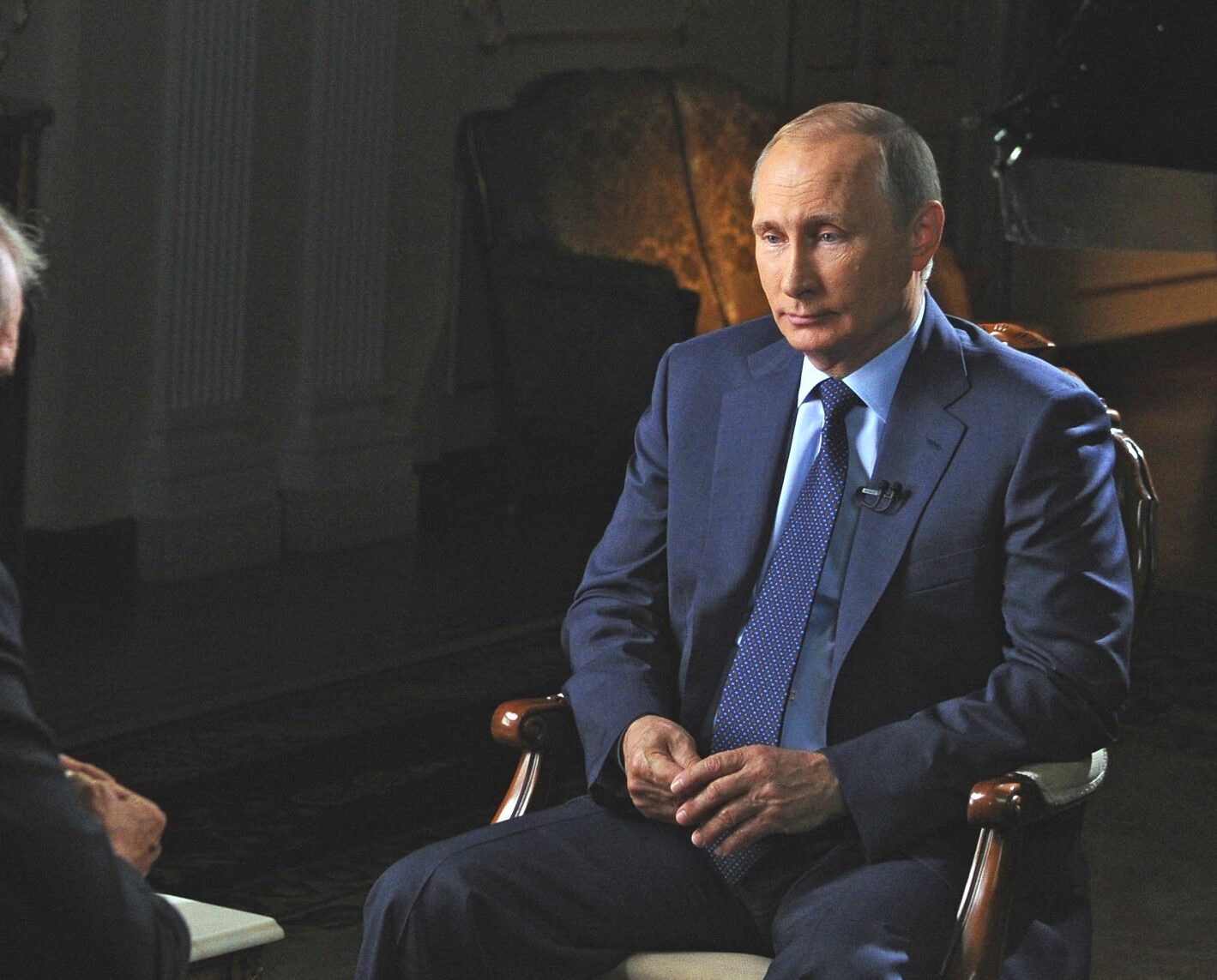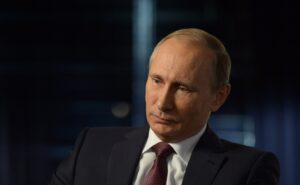VLADIMIR PUTIN’S REVEALING 9 TAKEAWAYS FROM THE LATEST INTERVIEW WITH TUCKER CARLSON
INSIGHTS INTO RUSSIA’S PERSPECTIVE: Unveiling Past Promises: Putin’s Encounter with Clinton on NATO

In a two-hour interview with Tucker Carlson, President Vladimir Putin he has delved into the intricacies of Russia’s historical interactions with the West. Putin disclosed a fascinating exchange with former US President Bill Clinton regarding Russia joining NATO.
According to Putin, Clinton initially expressed openness to the idea during a meeting in the Kremlin, only to retract the offer later during a dinner. This revelation sheds light on the dynamics of Russia’s aspirations and the ever-changing landscape of international relations.
Broken Promises: NATO’s Eastern Expansion
Contrary to promises made, Putin emphasized Russia’s frustration with NATO’s expansion to the East. Despite verbal assurances that NATO would not inch closer, there were five waves of expansion.
Putin revealed Russia’s attempts to persuade Western powers against this expansion, showcasing a failed diplomatic struggle. This historical context becomes crucial in understanding Russia’s perspective on the evolving geopolitical scenario.
Diplomatic Maneuvers: Journalist’s Release and Prisoner Swap
Addressing contemporary issues, Putin discussed the possibility of releasing Wall Street Journal reporter Evan Gershkovich, detained on spying charges. Putin hinted at a potential exchange, seeking the release of Russian prisoner Vadim Krasikov from Germany. This diplomatic move highlights Russia’s willingness to negotiate and showcases a pragmatic approach in resolving international disputes.
Negotiating Journalist Freedom
Putin expressed optimism about resolving Gershkovich’s case through ongoing discussions via special services channels. The potential release hinges on Western powers taking what Putin termed as “reciprocal steps.” Drawing parallels with previous successful prisoner swaps, Putin hinted at the prospect of a favorable outcome, emphasizing the importance of reaching a mutual agreement.
Provocation or Protection: Putin’s Stance on Ukraine
As the interview progressed, Carlson questioned Putin about potential Russian military involvement in Poland. Putin asserted that such a scenario would only arise if Poland attacked Russia, emphasizing Russia’s lack of interest in conflicts with neighboring countries.
Putin labeled any US military support for Ukraine as a ‘provocation,’ questioning the rationale behind involving American soldiers in a conflict thousands of miles away from their national territory.
The Call for Negotiation
Putin urged the United States to engage in diplomatic negotiations rather than supplying weapons to Ukraine. He argued that ceasing weapon supplies would expedite the resolution of the conflict, emphasizing that negotiations could follow once the fighting ceased. Putin’s call for dialogue highlights his preference for diplomatic solutions over military interventions.
Accusations and Allegations: Nord Stream Explosions
A notable revelation in the interview was Putin’s claim that the CIA was responsible for the explosions of the Nord Stream pipelines. Carlson probed Putin on evidence, to which Putin cryptically responded without divulging details. This allegation adds another layer to the ongoing geopolitical tensions surrounding energy resources and raises questions about the covert dynamics at play.
Geopolitical Intrigue: Nord Stream’s Role
Putin’s accusation against the CIA adds complexity to the geopolitical landscape, intertwining energy interests, and intelligence operations. The interview underscores the challenges of deciphering covert actions in a world where information and disinformation seamlessly coexist.
The Perils of Progress: Putin’s Concerns on AI and Genetics
Shifting the focus to broader global issues, Putin expressed concerns about the rapid advancements in artificial intelligence (AI) and genetics. Drawing parallels with historical challenges, Putin highlighted the need for international cooperation to regulate these technologies. He cautioned against the uncontrolled development of AI and genetics, emphasizing the importance of negotiations akin to Cold War-era arms control treaties.
Read also : 6 Tips to Deal with Stress/ Anxiety
Navigating the Future: Putin’s Vision
Putin acknowledged the inevitability of technological progress and the challenges it poses to humanity. He urged for a collective approach to navigate these challenges, proposing the possibility of international agreements to regulate AI and genetic research. Putin’s insights provide a glimpse into the complex intersection of science, diplomacy, and global governance.
In conclusion, President Putin’s interview with Tucker Carlson offered a multifaceted view of Russia’s historical grievances, diplomatic strategies, and concerns about global advancements.
The revelations in this interview serve as a valuable resource for understanding Russia’s perspective on key geopolitical issues, emphasizing the importance of dialogue and diplomacy in resolving complex international disputes.

